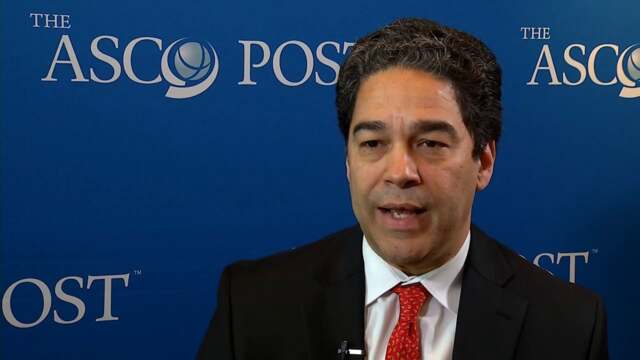Eric Jonasch, MD, on Kidney Cancer: Current and Novel Treatment Options
2015 NCCN Annual Conference
Eric Jonasch, MD, of The University of Texas, MD Anderson Cancer Center, discusses the progress being made in kidney cancer treatment and the clinical trials that focused on sunitinib, sorafenib, and everolimus, among others.
Melinda Telli, MD
Melinda Telli, MD, of Stanford Cancer Institute, discusses the TNT trial for triple-negative breast cancer and the results reported at the San Antonio Breast Cancer Symposium.
John A. Thompson, MD
John A. Thompson, MD, of the Fred Hutchinson Cancer Research Center and Seattle Cancer Care Alliance, discusses the latest immunotherapeutics for advanced melanoma, including pembrolizumab, trametinib, nivolumab, and dabrafenib.
Hans Gerdes, MD
Hans Gerdes, MD, of Memorial Sloan Kettering Cancer Center, discusses a new approach to the management of early-stage esophageal cancers with endoscopic resections.
Axel Grothey, MD
Axel Grothey, MD, of the Mayo Clinic Cancer Center, discusses how the NCCN Guidelines can help oncologists make strategic choices of the various agents available to treat metastatic colorectal cancer, individualizing patient care.
Samuel M. Silver, MD, PhD, and Margaret A. Tempero, MD
Samuel M. Silver, MD, PhD, of the University of Michigan Comprehensive Cancer Center, and Margaret A. Tempero, MD, of the UCSF Helen Diller Family Comprehensive Cancer Center, discuss drugs developed for hematologic malignancies that have activity in pancreatic cancer, vaccines, neoadjuvant treatment, and the need to focus on activated RAS.





